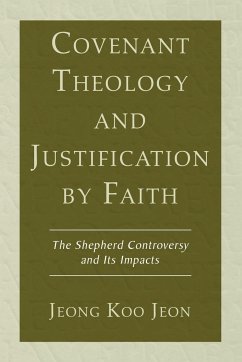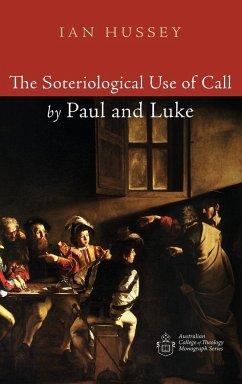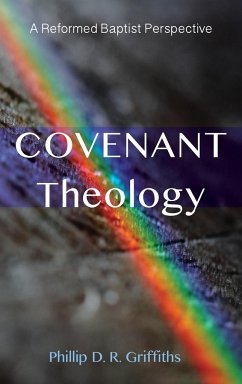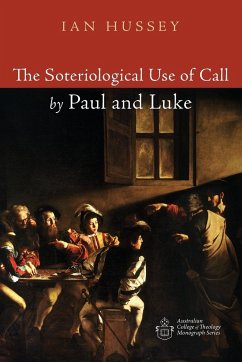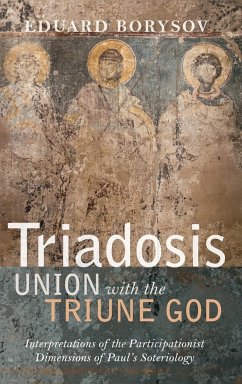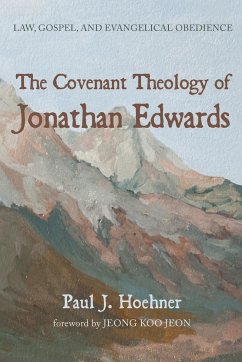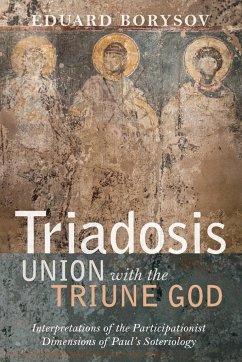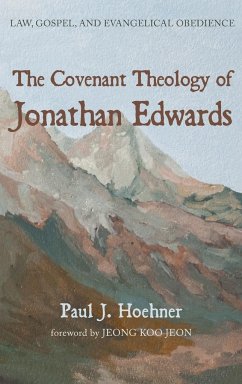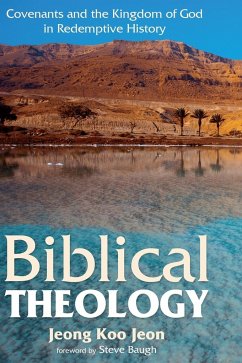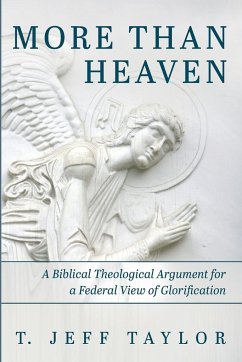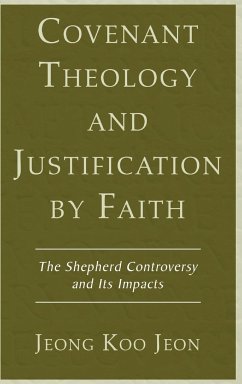
Covenant Theology and Justification by Faith
Versandkostenfrei!
Versandfertig in 1-2 Wochen
32,99 €
inkl. MwSt.
Weitere Ausgaben:

PAYBACK Punkte
16 °P sammeln!
This study explores the Shepherd Controversy (1975-1982) and the contemporary debate on covenant and justification by faith from the perspectives of historical, systematic, and biblical theology. The distinctive contribution lies in the identification that the Shepherd Controversy as a logical outcome of rejecting the distinction between Law and Gospel at Westminster Seminary in Philadelphia. The larger problem is that Norman Shepherd and other associated theologians reject the distinction between Law and Gospel, injecting their monocovenantalism into the theologies of Calvin, the Westminster ...
This study explores the Shepherd Controversy (1975-1982) and the contemporary debate on covenant and justification by faith from the perspectives of historical, systematic, and biblical theology. The distinctive contribution lies in the identification that the Shepherd Controversy as a logical outcome of rejecting the distinction between Law and Gospel at Westminster Seminary in Philadelphia. The larger problem is that Norman Shepherd and other associated theologians reject the distinction between Law and Gospel, injecting their monocovenantalism into the theologies of Calvin, the Westminster Standards, and Murray. The result has been hermeneutical and theological confusion among some of the followers of the Union with Christ School scholars. Reformed theonomists (led by Greg Bahnsen), Auburn Avenue theologians, and pastors are also monocovenantalists and have been influenced by the Union with Christ School scholars directly and indirectly. Their common denominator is the rejection of the distinction between Law and Gospel in their analysis and understanding of covenant and justification by faith. Having been influenced by the Union with Christ School scholars at Westminster Seminary in Philadelphia, some scholars began to adopt the hermeneutics and theology of the New Perspective on Paul, which is anti-Reformational and anti-Pauline. The adaptation of the New Perspective on Paul among some of the followers of the Union with Christ School is a logical step because both of them reject the distinction between Law and Gospel, which was a key hermeneutical and theological tool during the sixteenth-century Protestant Reformation against the background of the medieval legalistic religion.





